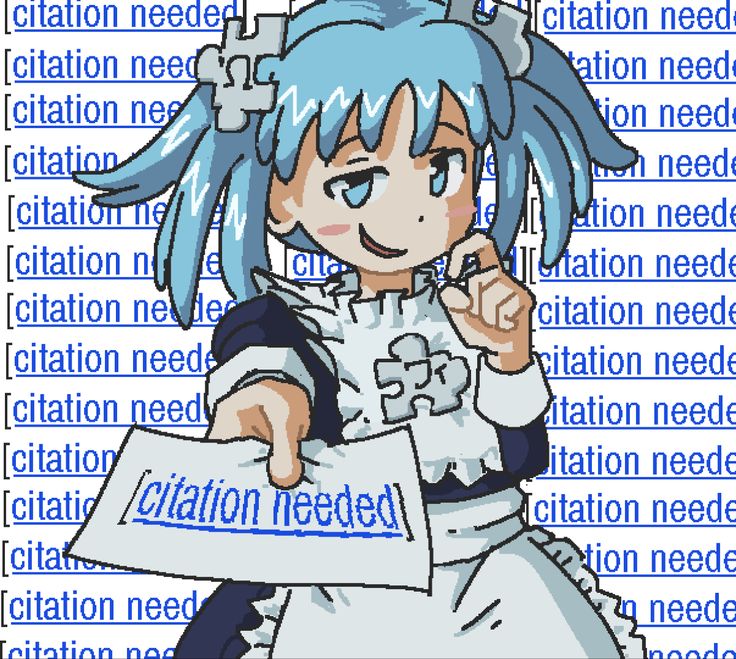cross-posted from: https://lemmygrad.ml/post/3023016
Took part in an RGS and the head people all push that Maoism is scientifically the best form of Communism. Can anyone explain this view? Also, the group seems to want everyone to hold this view. Isn't splitting into sub-ideologies hurting the potential for a larger movement?
-a confused newbie.
It makes sense where there hasn't been a revolution yet because it appears to work. But it's not MLM that works, it's the ML bit. Trying to apply the Maoist bit outside of twentieth century China will go about as well as trying to recreate 1917 in Russia.
The problem with MLMs is a misunderstanding of the trajectory. They think it goes M&E > ML > MLM. But it's M&E > ML. The MLM stage is not it's own path. Like Stalin, Mao wasn't creating something new.
This is why MLMs tend to dislike China. They think Deng and Xi betrayed Mao. But they were faithful to Mao's adaptation of ML. Because they realised that Mao's approach was suitable for securing a revolution but not so much for socialist construction. It would be anti-Mao to treat him dogmatically.
Maoism is not a 'form of communism' but an ML framework adapted to seizing power, expelling imperialists, and consolidating a dictatorship of the proletariat. Regis Debray talks about a similar problem with assuming that Castro's approach to Cuba can be rolled out across the Americas like a flat pack, ready-to-assemble revolution.
Maybe MLMs should read OPPOSE BOOK WORSHIP instead of dogmatically cargo-culting Mao’s specific path to liberation, which was for a specific place at a specific time.
Like Stalin, Mao wasn't creating something new.
Stalin is who codified Marxism-Leninism though. A more apt comparison with Mao would be Lenin. Lenin was not a Leninist, he conceived of what he was doing as returning to the roots of Marxism, and innovating within that framework. In contrast to the revisionism of the 2nd international.
Maoists would assert that, while Mao was not creating something new, as Mao was an ML, he was responding to Kuschev's revisionism, and The Chinese revolution did make certain innovations that set the stage for an ideological, epistemic, break from ML, just as Lenin's innovations set up the break of ML from 2nd international Marxist revisionism.
And for the Maoists, the thing that causes that break is the Revolutionary Internationalist Movement, which they conceive of, as synthesizing MLM from a few different things.
Those things being the Chinese experience, the rejection of Deng as revisionist and Reform & Opening Up as a turn back to capitalism, and the experience of Sendero Luminoso.
I'm not a Maoist, as I don't think it's yet proven itself to actually be a third stage of revolutionary science, but I think it's worth fleshing out, and representing as accurately as possible, what they think of as the ideological chain of development for Maoism.
Not directly answering your question but I was watching a guy explaining MLM the other day and the very beginning he stressed how Scientific Socialism is scientific due to falsifiability. Then much later on he does the classic "Denying MLM to uphold ML is like denying Einstein to uphold Newton" and that tickled my brain.
So ML is scientific because it has successfully led to revolutions, but MLM is even more scientific because it has successfully done... what exactly? Temporarily occupied rural areas with guerrillas? Even if you buy their position that the ML states reverted to Capitalism, it's not that much of an improvement.
Honestly I just think it's obscurantism. Most MLM's I've found would start the explanation with "some aspects of the Cultural Revolution are universal" but then flounder in explaining which specific ones those were. Probably because if they peg one down they'll cause dogmatic splits in their groups. But then they get to claim that you just don't understand, it's all peak Marxism, and all other Marxists aren't real Marxists. I've been doing a lot of reading on different authors this year and major difference between (most) ML authors and (most) MLM authors is that the former are actually pretty intuitive while the latter were very confusing and all-over-the-place.
Yeah, Maoists claim to be scientific, but simply state that they are. Ask 15 different Maoists what makes Maoism more scientific than traditional ML theory and you'll get 15 different answers.
I know this word gets thrown around a lot, but they are dogmatic. They repeat their "universal truths" to themselves hoping that will make them come true (MLM is the next step in socialist movements, PPW is the only correct way to wage a revolution etc.) They're idealists who refuse to perform self-crit.
(And then there's the shady stuff, where a lot of MLM theory was developed by various US communist orgs, who were always 100% definitely not being influenced by three letter agencies to create a defanged and ineffectual form of Marxism. Not to mention Gonzalo or the CPP or the Nepalese Maoists)
Thanks, this is also helpful. Any reading recommendations?
BTW why is your text background all brown and hard to read?
There’s a new UI feature that makes new comments have a different background color. It expires after a few minutes.
Thanks for explaining. Hope I can change this because the text and background font are almost the same on my screen.
Maybe you’re not the only one. I’d check here:
- !lemmy_support@lemmy.ml
- https://github.com/LemmyNet/lemmy-ui/issues
- Background color for new comments is too bright on darkly #2264
BTW why is your text background all brown and hard to read?
Seems to be the indicator for "new reply" in the new lemmy version. Maybe whoever implemented that did not consider how that'd be harder to read for some folks. As a quick fix you can just refresh the page again.
Any reading recommendations?
On critiques of MLM specifically or just MLM in general? If the latter, the PCP had a web page that's still up on the web archive, complete with a very long and detailed FAQ section in both English and Spanish. No better sources for their beliefs than themselves.
https://web.archive.org/web/20061003131815/http://www.blythe.org/peru-pcp/
Now the criticisms were mostly loose texts in Portuguese (in particular against our own university Maoists), so they won't be of much help. But I've heard that there's some ProleWiki book with heavy critiques of the Peruvian people's war in the works.
Thanks for explaining. Very hard to read, hope I can change that.
I will check out that website, thanks. I will try to find more.
There once was a simple-minded farmer tending to his coconut trees. He tied the little saplings to sticks, and day by day, he routinely came with the watering can and gave all of them the water they needed. Over the years, they grew tall and cast a long shadow across the lands, yet he still did not remove the sticks or stop watering them, nor did he collect the coconuts they would begin to bear, for he believed that by continuing to do so, the trees would grow taller still and bear even bigger fruit. One afternoon, when he rested beneath a tall and luscious palm, an overripe coconut fell on his head and killed him. By continuing to treat his palmtrees like little saplings when they clearly had stopped to be, not only did he lose his own life, but he died without tasting a single fruit of his labours.
The fruit represent the next stage of future society, gathering them would be to enjoy the following stages of socialism after the primary one; in China's case the current moderately prosperous and by 2049 the modern socialist society. The fable is a little simplistic, China had to obtain a certain level of prosperity using Maoist methods (which it did) to make Opening Up possible without subjecting China to slavery at the hands of the Western imperialists, but without Opening Up, China would not have reached anywhere near its current material conditions and geopolitical leverage, and possibly would not have survived the 1989-1991 wave of counterrevolutions. In this little story I therefore maintain that in dealing with imperialists, one must always reach for the nuts
Thanks, I like this explanation a lot.
I agree that this helped China a lot but IMO modern Chinese working life is just as bad as in America. That is not to say that life has not been improved at an insane rate. I hope the low to middle class worker can be less of a slave soon. A lot of my family has zero retirement plan other than betting on government insurance which barely pays half of what one needs to live.
I'm not sure if one should compare Chinese and US working life by focusing on the shop floor. Half of the US lives in luxury and the other half is in misery. For whom there is no retirement plan other than death. And that's not counting the billions of people outside the US who have to live in even worse misery to prop up the lifestyles of the wealthiest USians. Working life in the US cannot be understood in isolation from what the US is.
Then there is the fact that the US is crumbling. It's trains and underground and falling apart. It's workers have to commute for hours a day in a single car that they work to keep running. There might be parts of China that are not as futuristic and well maintained as it's high speed rail network but the fact that it's trying to improve infrastructure means people in China have the opportunity for something that most USians and it's oppressed billions will never have: hope.
Not to mention that the US way of life has depended on genocide and brutality for 400 years. That's where the wealth in the US comes from; and still it's working class lives in terrible, precarious conditions. Whatever working conditions are like in China, it's an improvement on being subjugated by imperialists and on committing genocide and becoming an imperialist itself to improve conditions more rapidly.
Finally, the radical increase in living standards in China is still increasing. The US hit it's peak decades ago and is now declining. With the transformation of quantity into quality, we can expect conditions in the US to disintegrate in leaps while those in China improve in leaps. In another 10–20 years it won't even be close.
Fully agree with you on the US crumbling and Chinese standards continuing to fly light years beyond but the standard Chinese worker’s life does suck. I say this from my experience. I know very few from the 20s to 50s that’s current happy working. Most work for little pay and barely can afford things. Again, I agree with the larger picture but if you live in China I think the person to person picture is full of capitalistic like stress.
That makes sense. I've seen a few videos about ordinary people in China and even though they were positive, they still described some things that were less than ideal. They were talking about how great it is for 'entrepreneurs' to do well and I was thinking, that sounds a lot like industrial capitalism before neoliberalism in the west and (a) that wasn't great for everyone else and (b) we know how that turned out. I'm really hoping that China gets the balance right over the next few years!
I hope so as well. Many western leftists act like China surpassing the US would be a bad thing. They aren't perfect but they've done a whole lot more for the common person than the US does.
Covid really made things hard. A lot of people lost money as companies and individuals couldn't pay their workers or lendees, making very few have savings they need. My immediate family's savings is my job.
But you do make a great point redtea, China is in a league of its own. Yes, life is still hard but the standard of living in most cities is so beyond that of the US. When I was getting insurance in the west and told them which cities in China I would be in, they thought it was a third world city... These are cities with over 2 million people, subway systems, multiple hospitals, and colleges... It is wild how big the different in social services is.
You're making good points, too, and I really like hearing from someone with first-hand experience. Most of what I read is theoretical or a news announcement about being ahead of schedule on a massive infrastructure project. It's easy for me to get a rosy picture because I'm a fan on the CPC and it's incredible to me that China can even start infrastructure and other projects, nevermind finish them or finish them ahead of schedule. It's like reading sci-fi sometimes. But the view of the ordinary worker is missing.
Do people use foodbanks in China / do you hear stories about parents going hungry to leave enough food to feed their children?
This is a purely non-antagonistic contradiction, regardless of your opinions on the PCP. As for the RGS, they maintain a political line, which you have to follow if you want to get in, like any other party.
Maybe start by studying PCP, they have multiple volumes from the 1960s till now. But for that you have to study M&E, Lenin then Mao.
As for the answer, Maoist analysis is that there is always potential of an inner bourgeoisie forming within the party, because class struggle continues under socialism, and the bourgeoisie will do anything they can to gain power back. If that is universal, then so is Maoism. Continuous purges are necessary, and the proletariat needs to get rid of the existing remenants of capitalism not just in the economic base, but in the cultural superstructure as well. I don't think it is any different from what Stalin did, and I hold that this is the praxis of Gramsci's theory of cultural hegemony.
I don't really think anyone should look at self-identified Maoists on twitter and call them dogmatic, endless debates will not result in anything, the internet is not the class struggle. I think you should talk more with RGS, I don't hold them in any negative way, I've heard decent things from them. They are student groups afterall.
From what I've seen, there are some MLMs who uphold everything Mao has done, with them denying his mistakes. I tend to call those people "Huaists" after the dogmato-revisionist Hua Guofeng
What do you mean by the "best" form of communism? "Best" in what way? In terms of how it complies to a set of principles you hold, such as justice and equality?
The only standard we have as communists for what is "better" is in relation to how something increases the power of the proletariat. The theses of Marxism-Leninism-Maoism surround the strategy of the achievement and strengthening of the proletarian state. Maoists believe that Cultural Revolution is necessary in order to combat the new bourgeoisie within the socialist society, that an understanding of principal, fundamental, and antagonistic contradictions is necessary in order to understand the world, that an understanding of the comprador bourgeoisie and neo-colonialism is necessary to grasp the conditions of the oppressed nations under imperialism. These are claims which are derived from practice, testable, and scientific. Maoists believe that Maoism is the most advanced proletarian science, not that it is the "best form of communism"





